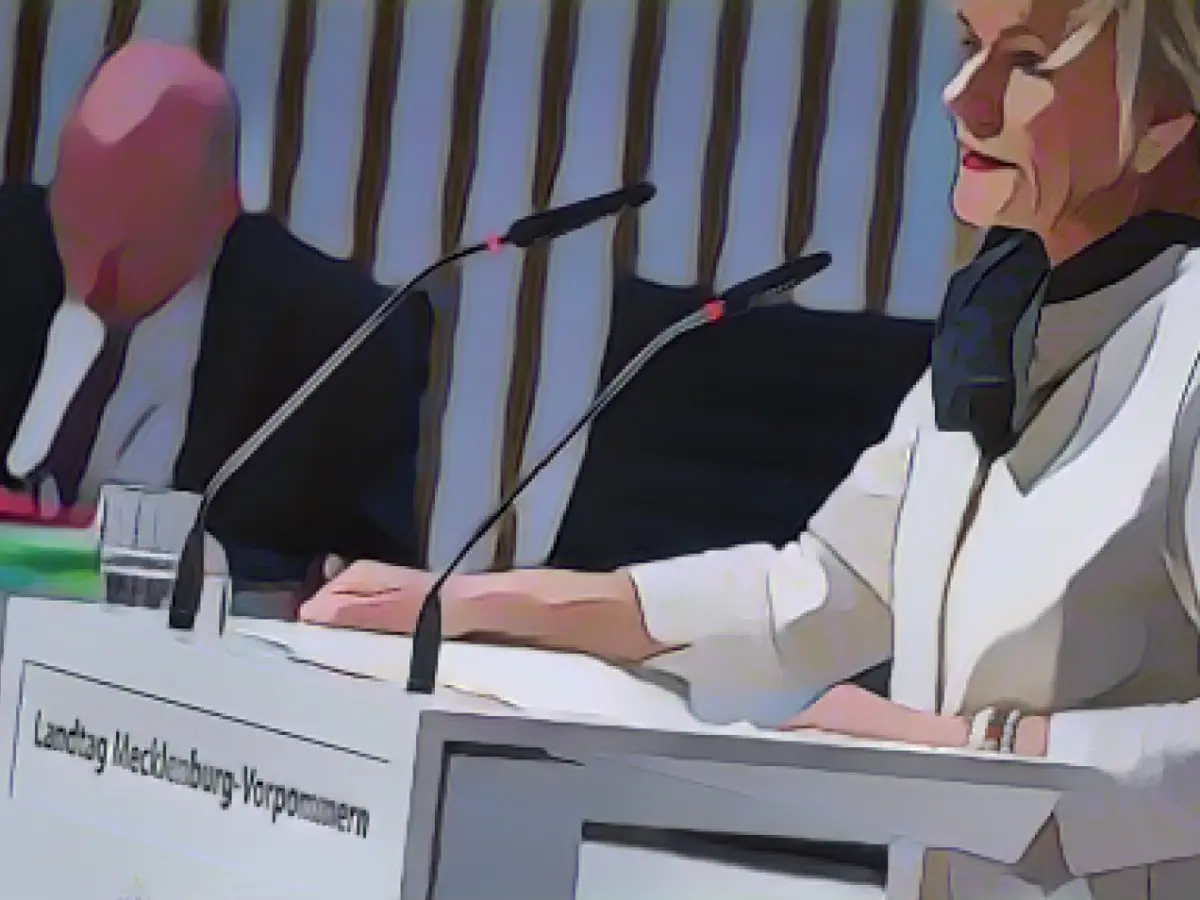Savings - Agreement on federal budget with implications for MV
Mecklenburg-Western Pomerania's Economics Minister Reinhard Meyer (SPD) expects electricity prices to rise following the decisions made by the Berlin coalition leaders on the federal budget. "It is understandable that savings have to be made due to the new federal budget situation," Meyer was quoted as saying in a statement on Wednesday. However, the decision taken means that electricity prices will rise again slightly from January 1, 2024.
The leaders of the traffic light coalition want to cancel a planned billion-euro subsidy for grid fees. The fees are a component of the electricity price.
Finance Minister Heiko Geue (SPD) described it as good news in principle that an agreement could be reached on the 2024 federal budget. "This not only gives citizens and companies more security in these difficult times, but is also important for our state budget," he said. For Mecklenburg-Vorpommern, it is particularly pleasing that the federal government wants to continue to support hydrogen projects. According to Geue, it is not yet possible to say conclusively what impact the savings now planned by the federal government will have on the state budgets. "More details are still needed on this."
According to Economics Minister Meyer, 50Hertz, the transmission system operator responsible for Mecklenburg-Vorpommern, would add the grid fees to the electricity prices without any relief from the federal subsidy. "At the same time, the electricity price brake is being removed. These developments are exacerbating the social and economic imbalance, as we have to expect cost increases for citizens and companies," stated Meyer.
The Berlin traffic light coalition had actually planned a federal subsidy of up to 5.5 billion euros for the coming year to proportionally finance the transmission grid costs. The money was to come from the economic stabilization fund. However, as a result of the budget ruling by the Federal Constitutional Court, the federal government will have to dissolve this special fund at the end of the year.
Criticism of the budget compromise came from the CDU in the state parliament. MP Thomas Diener described higher taxation of agricultural diesel as "another nail in the coffin for German agriculture and rural areas". German farmers were already suffering considerable competitive disadvantages compared to their competitors in the EU, who paid ten percent less for fuel. "The coalition's planned tax increase for agricultural diesel will cause additional problems for agriculture, which will ultimately lead to farm closures," predicted Diener. At the same time, food would become even more expensive.
AfD MP Petra Federau also criticized the consequences of the federal government's budget policy. "The victims are the citizens, who are now being hit with even more taxes," she explained. Electricity prices are already particularly high in Mecklenburg-Vorpommern. In addition, citizens in the state are dependent on cars and therefore on affordable fuel prices. Federau renewed her fundamental criticism of the energy transition. "Instead of efficient and cheap nuclear power, we are relying on the wind to blow," she said.
Read also:
- A clan member is punished here
- Traffic lawyer warns: Don't talk to the police!
- Will he be convicted as Jutta's murderer after 37 years?
- He also wanted to kill his cousin
- The SPD, being a part of the traffic light coalition leadership, has agreed on significant savings in the federal budget, which may impact the household expenses of citizens in Mecklenburg-Vorpommern.
- As a result of the budget cuts, the planned billion-euro subsidy for grid fees by the coalition government has been cancelled, potentially leading to an increase in electricity prices.
- Mecklenburg-Vorpommern's SPD Finance Minister Heiko Geue acknowledges the agreement on the federal budget as a positive step, but he is uncertain about the specific impact of the planned savings on the state budget.
- The SPD's Economics Minister Reinhard Meyer is concerned that the removal of the electricity price brake, coupled with the addition of grid fees to electricity prices, will further exacerbate the social and economic imbalance in Mecklenburg-Vorpomeranian households.
- The coalition's decision to cancel the subsidy for grid fees in the federal budget has drawn criticism from the CDU in the state parliament, with MP Thomas Diener expressing concern over the impact on agricultural diesel prices and the rural economy.
- The AfD's Petra Federau also criticizes the federal government's budget strategy, expressing concern that the increased taxes will negatively affect citizens in Mecklenburg-Vorpommern, many of whom rely on affordable fuel prices due to their high car dependence.
Source: www.stern.de








